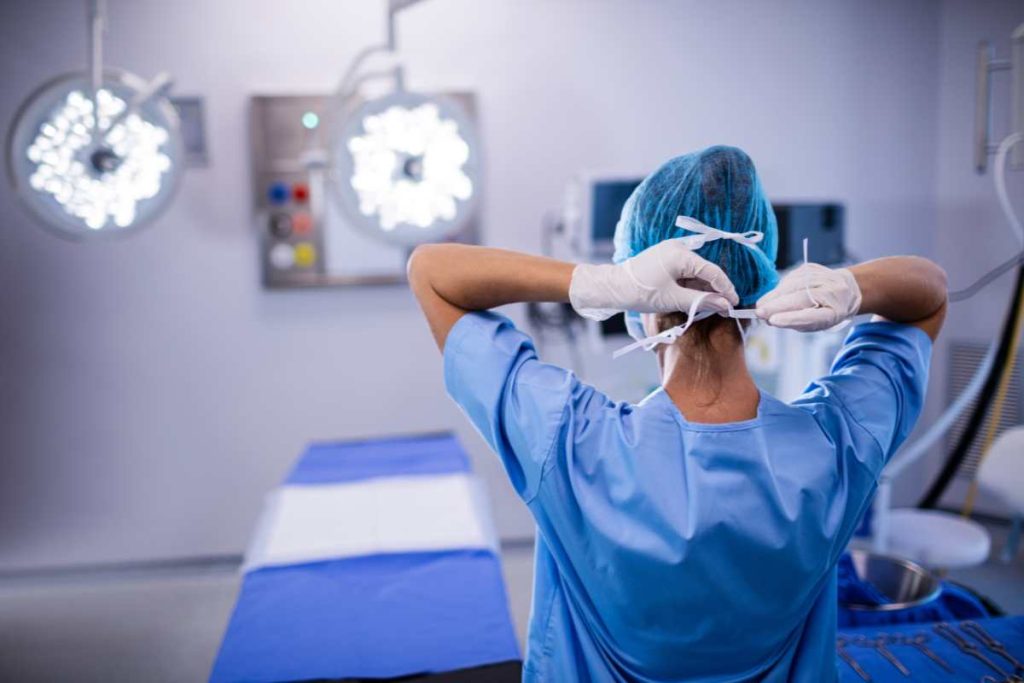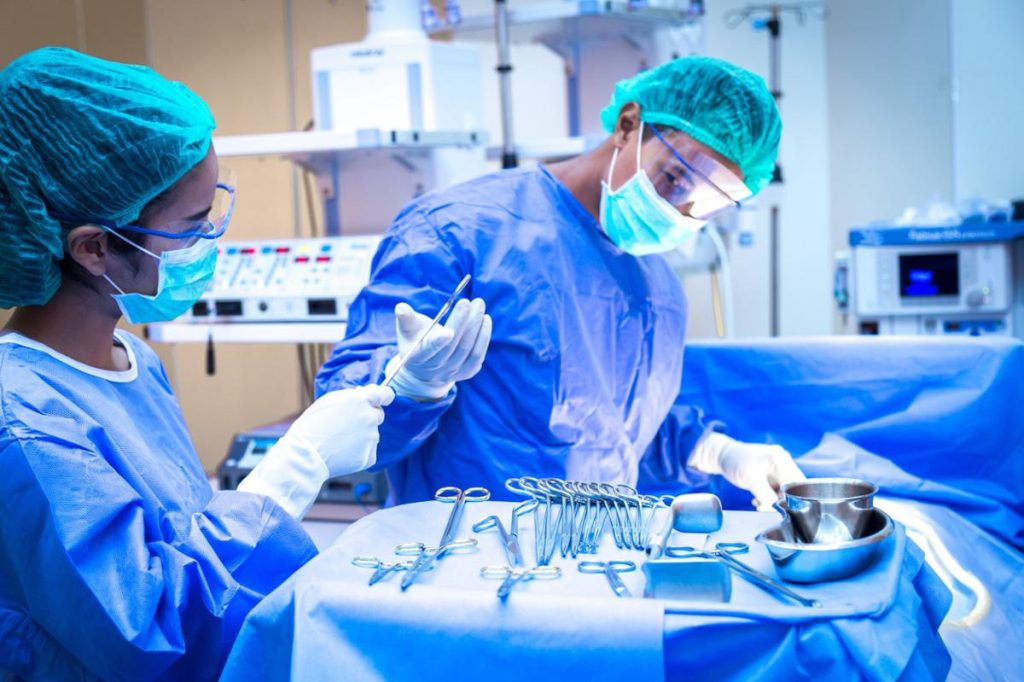What Preoperative Nurses Do: Specialisation, Qualification, Salaries, and Duties in Australia
Preoperative nurses, also known as perioperative or surgical nurses, play an integral role in ensuring that patients are prepared for surgery and that the surgical process runs smoothly. These nurses are involved in preparing patients physically and mentally for surgery, assisting in surgical procedures, and ensuring that everything is in place for a successful outcome. This article explores the role of preoperative nurses in Australia, including their specialisations, qualifications, duties, and salary expectations.

Preoperative Nursing in Australia
1. Specialisations in Preoperative Nursing
Preoperative nursing is a specialised area within the broader field of perioperative nursing. Nurses in this field may choose to specialise further in different areas, depending on their interests and expertise. Common specialisations within preoperative nursing include:
- Scrub Nurse
Scrub nurses assist in the operating room by maintaining a sterile environment during surgery. They pass instruments to the surgeon, prepare sterile fields, and ensure that the surgical team has everything they need. They are highly trained in aseptic techniques and sterile procedures. - Circulating Nurse
Circulating nurses are responsible for managing the environment in the operating room. They ensure that all equipment is set up properly and are responsible for patient safety, including ensuring that the surgical team adheres to safety protocols. They often communicate with other medical professionals outside the operating room and assist with the preparation and positioning of the patient. - Anaesthetic Nurse
Anaesthetic nurses assist anaesthetists in the administration and monitoring of anaesthesia before, during, and after the surgery. They are responsible for ensuring that the patient’s vital signs are stable and providing support during the induction and recovery from anaesthesia. - Anaesthesia Care Nurse
While not strictly preoperative, postanaesthesia care nurses (PACU nurses) care for patients immediately after surgery, monitoring vital signs and helping them recover from the effects of anaesthesia. Their role bridges the gap between the operating room and post-surgical recovery, ensuring that patients are safely transitioned from surgery to recovery.
2. Qualifications Required for Preoperative Nurses in Australia
To become a preoperative nurse in Australia, specific educational and professional qualifications are required. The following are the key steps to entering this specialised field:

- Bachelor of Nursing
The first step is to complete a Bachelor of Nursing degree, which is typically a three-year program. This degree provides a broad foundation in nursing, including basic clinical knowledge, patient care, anatomy, physiology, pharmacology, and ethics. - Registered Nurse (RN) Registration
After completing the Bachelor of Nursing, you must be registered as a registered nurse with the Nursing and Midwifery Board of Australia (NMBA). This registration is required to practice nursing in Australia and ensures that you meet the competency standards set by the NMBA. - Specialised Perioperative Nursing Education
Once you have gained experience as a registered nurse, you can pursue specialised education in perioperative nursing. This typically involves completing a Graduate Diploma in Perioperative Nursing or a Master of Nursing (Perioperative). These programmes provide advanced knowledge in surgical procedures, aseptic techniques, anaesthesia, and patient care during surgery. - Clinical Experience
Clinical experience in the operating room is essential for preoperative nurses. Most nurses working in this field will have previous experience in general medical or surgical nursing before specialising in perioperative care. As you gain more experience in the operating room, you can choose to specialise further in roles like scrub nurse or anaesthetic nurse. - Continuing Professional Development (CPD)
To maintain registration and stay up to date with best practices, preoperative nurses are required to complete Continuing Professional Development (CPD). This may include attending workshops, conferences, and courses on new surgical technologies, patient safety, and surgical techniques.
3. Duties and Responsibilities of Preoperative Nurses
Preoperative nurses play a critical role in ensuring that patients are adequately prepared for surgery and that the surgical environment is sterile and efficient. Their responsibilities include

- Preoperative Assessment
Before surgery, preoperative nurses assess the patient’s health and medical history. This includes taking vital signs, reviewing medical records, ensuring that necessary tests (e.g., blood tests, ECGs) have been conducted, and verifying patient information to prevent errors. They also explain the surgical procedure to the patient and address any concerns, helping to ease anxiety. - Patient Education
Preoperative nurses are responsible for educating patients about the surgical process, what to expect, and how to prepare for the procedure. This may involve instructions on fasting, medication management, and the importance of following preoperative guidelines. - Preparing the Operating Room
Preoperative nurses are involved in preparing the operating room for surgery. They ensure that all surgical instruments and equipment are sterile, and they prepare the surgical field, position patients, and check that all necessary supplies are available. - Assisting During Surgery
Once the surgery begins, preoperative nurses assist the surgical team by passing instruments, managing sterile drapes, and ensuring that the surgical environment remains sterile. Scrub nurses play a direct role in the surgery, while circulating nurses assist with coordination and patient positioning. - Monitoring Patient Vital Signs
Preoperative nurses work closely with anesthesiologists and other members of the surgical team to monitor the patient’s vital signs (e.g., heart rate, blood pressure, oxygen saturation) before and during the procedure. This is essential for ensuring the patient’s stability and identifying any complications early. - Postoperative Care and Recovery
After surgery, preoperative nurses help transfer the patient to the recovery area, where they monitor the patient’s response to anaesthesia and ensure they are recovering as expected. They also document any complications or issues that arise during surgery.
4. Salaries and Job Outlook for Preoperative Nurses in Australia
Salaries for preoperative nurses in Australia vary based on factors such as experience, location, and specialisation. On average:
- Salary Range
A registered nurse (RN) in Australia typically earns between AUD 65,000 and AUD 85,000 annually. However, preoperative nurses with specialised training in perioperative care or anaesthesia may earn higher salaries, often ranging from AUD 85,000 to AUD 100,000 per year or more, especially in senior or specialised roles like scrub or anaesthetic nurse. - Specialization and Experience
Specialised nurses, particularly those with advanced qualifications such as a Graduate Diploma in Perioperative Nursing, can earn more due to their specialised skills. Senior preoperative nurses, or those in leadership roles, may earn higher salaries, especially in metropolitan hospitals or private clinics. - Location
Salaries can vary based on location. Nurses in urban areas like Sydney or Melbourne may earn higher salaries due to the cost of living, while nurses working in rural or remote areas may receive additional incentives or allowances. - Career Progression
With experience and further education, preoperative nurses can move into higher-paying roles, such as clinical nurse specialist, nurse manager, or educator in perioperative nursing.
5. Job Opportunities and Demand
The demand for qualified preoperative nurses is strong in Australia, driven by the ongoing need for skilled nurses in hospitals and healthcare facilities across the country.
- Job Demand
As the population ages and the demand for surgeries increases, there is a growing need for preoperative nurses to assist in operating rooms and surgical procedures. Nurses with specialised skills in anaesthesia, intensive care, and surgery are particularly in demand. - Opportunities in Public and Private Hospitals
Preoperative nurses can find employment in both public hospitals and private healthcare facilities. With the continued growth of the healthcare industry, especially in metropolitan areas, there are ample opportunities for preoperative nurses to advance their careers and take on leadership roles. - Remote and Rural Areas
Nurses in rural or remote areas of Australia may have fewer healthcare workers, so preoperative nurses who are willing to work in these areas may find additional job opportunities or higher salaries and incentives.
Conclusion
Preoperative nurses in Australia are essential to the surgical process, ensuring that patients are properly prepared and cared for during surgery. With specialised qualifications in perioperative nursing, these professionals are well-equipped to work in various surgical settings, from intensive care to emergency departments. By obtaining the necessary qualifications, gaining clinical experience, and specialising in a particular area, preoperative nurses can build rewarding careers with opportunities for advancement, specialised roles, and competitive salaries. Whether working in metropolitan hospitals or remote areas, the role of the preoperative nurse is vital to the success of surgeries and the well-being of patients.

